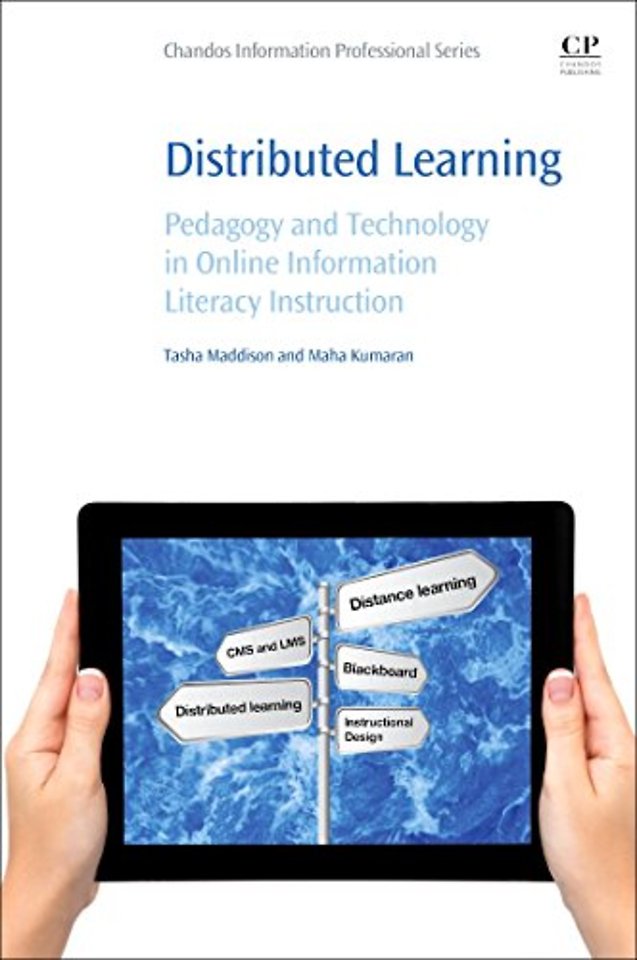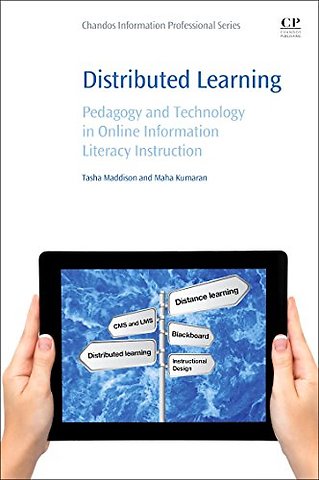<p>Chapter 1. Introduction</p> <p>Section I: Foundations of Distributed Learning</p> <p>Chapter 2. Literature Review of Online Learning in Academic Libraries</p> <p>Chapter 3. Using Theory and Practice to Build an Instructional Technology Tool Kit</p> <p>Section II: Pedagogy</p> <p>Chapter 4. Designing Online Asynchronous Information Literacy Instruction Using the ADDIE Model</p> <p>Chapter 5. Enhancing Kuhlthau’s Guided Inquiry Model Using Moodle and LibGuides to Strengthen Graduate Students’ Research Skills</p> <p>Chapter 6. A Model for Teaching Information Literacy in a Required Credit-Bearing Online Course</p> <p>Chapter 7. Engaging Learners Online: Using Instructional Design Practices to Create Interactive Tutorials</p> <p>Chapter 8. Developing Best Practices for Creating an Authentic Learning Experience in an Online Learning Environment: Lessons Learned</p> <p>Section III: Technology</p> <p>Chapter 9. Delivering Synchronous Online Library Instruction at a Large-Scale Academic Institution: Practical Tips and Lessons Learned</p> <p>Chapter 10. Making Library Research Real in the Digital Classroom: A Professor–Librarian Partnership</p> <p>Chapter 11. Forging Connections in Digital Spaces: Teaching Information Literacy Skills Through Engaging Online Activities</p> <p>Chapter 12. Innovation Through Collaboration: Using an Open-Source Learning Management System to Enhance Library Instruction and Student Learning</p> <p>Chapter 13. From Technical Troubleshooting to Critical Inquiry: Fostering Inquiry-Based Learning Across Disciplines Through a Tutorial for Online Instructors</p> <p>Chapter 14. Embedding the Library in the LMS: Is It a Good Investment for Your Organization’s Information Literacy Program?</p> <p>Chapter 15. A Decade of Distributed Library Learning: The NOSM Health Sciences Library Experience</p> <p>Chapter 16. Parallel Lines: A Look at Some Common Issues in the Development, Repurposing, and Use of Online Information Literacy Training Resources at Glasgow Caledonian University</p> <p>Section IV: Case Studies</p> <p>Chapter 17. Concept to Reality: Integrating Online Library Instruction Into a University English Curriculum</p> <p>Chapter 18. A Successful Reboot: Reimagining an Online Information Literacy Tutorial for a First-Year Experience Program</p> <p>Chapter 19. Rethinking Plagiarism in Information Literacy Instruction: A Case Study on Cross-Campus Collaboration in the Creation of an Online Academic Honesty Video Tutorial</p> <p>Chapter 20. Adapting to the Evolving Information Landscape: A Case Study</p> <p>Section V: Innovations</p> <p>Chapter 21. Gaming Library Instruction: Using Interactive Play to Promote Research as a Process</p> <p>Chapter 22. Implementing Flipped Classroom Model Utilizing Online Learning Guides in an Academic Hospital Library Setting</p>

